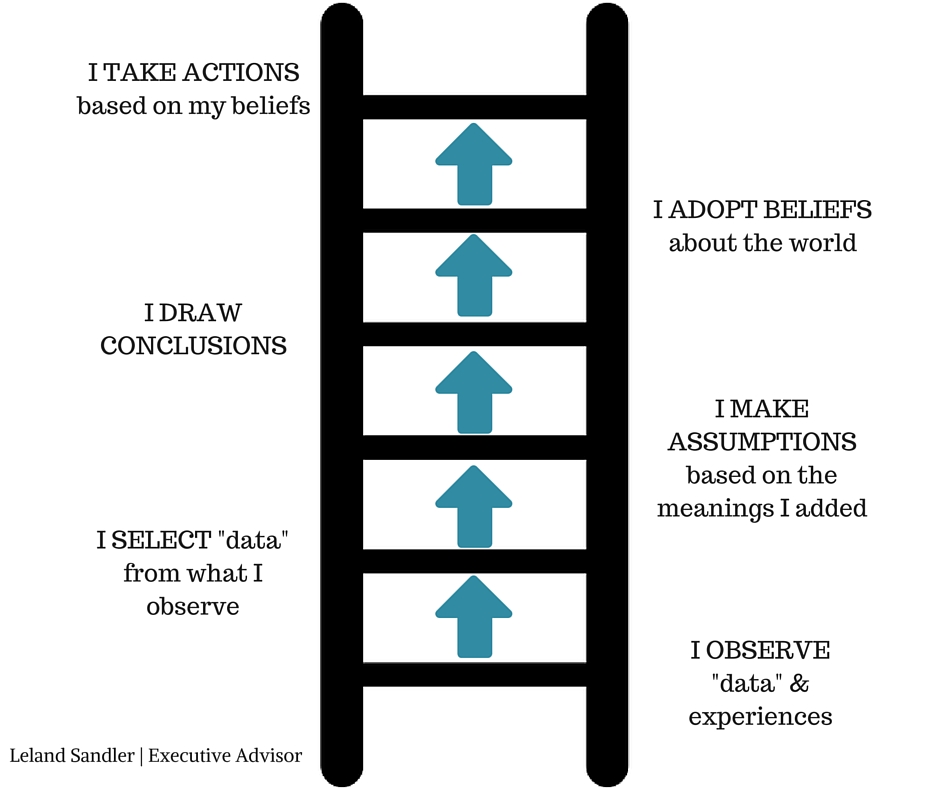As an executive advisor, I am always searching for new and innovative ways to help professionals excel in the business world by enhancing their communication and leadership skills. At the Sandler Group, we use a number of tools to help our clients master these skills and effectively interact with other professionals. One of our most valuable tools is called the Ladder of Inference.
The Ladder of Inference is a tool that demonstrates to an individual how inefficient their thinking is. When an individual takes in information, they often unknowingly observe an incomplete reality based on their preexisting assumptions and past experiences. They filter the information without thought or consideration and draw conclusions based on their interpreted facts and assumptions. In this way individuals often develop beliefs based on these assumptions and take action that may seem right, but could be disastrous.
So what happens? In today’s business world, these self-generated beliefs remain largely untested. This often leads to a loss in ability to achieve great results. A  business’ chance of succeeding drastically weakens when a group or individual has the mindset that:
business’ chance of succeeding drastically weakens when a group or individual has the mindset that:
-Their beliefs are the truth
-The truth is obvious
-Their beliefs are based on real data
-The data they select is always the real data
The Ladder of Inference is a tool that works to prevent this way of thinking by getting individuals to “catch themselves” before they go too far down their road of personal assumptions.
There are two types of skills that play a key role in helping individuals overcome these inaccurate assumptions: reflective thinking and inquiry. Reflective thinking involves slowing down the thinking process in order to become more aware of how we are reaching our conclusions and assumptions, and then sharing that thinking. Inquiry involves engaging in conversations where we can openly share views, share assumptions, and ask for more information about one another’s point of view. The goal is really understand what a person is saying and how their thinking makes sense to them.
Working with the Ladder of Inference will help professionals become better team members, communicators, and leaders. It will help businesses implement strategies that are the most effective for everyone involved. By using the ladder of inference we engage our reality most efficiently; we avoid conflict; we avoid misunderstanding, and we get great results.

Follow Me